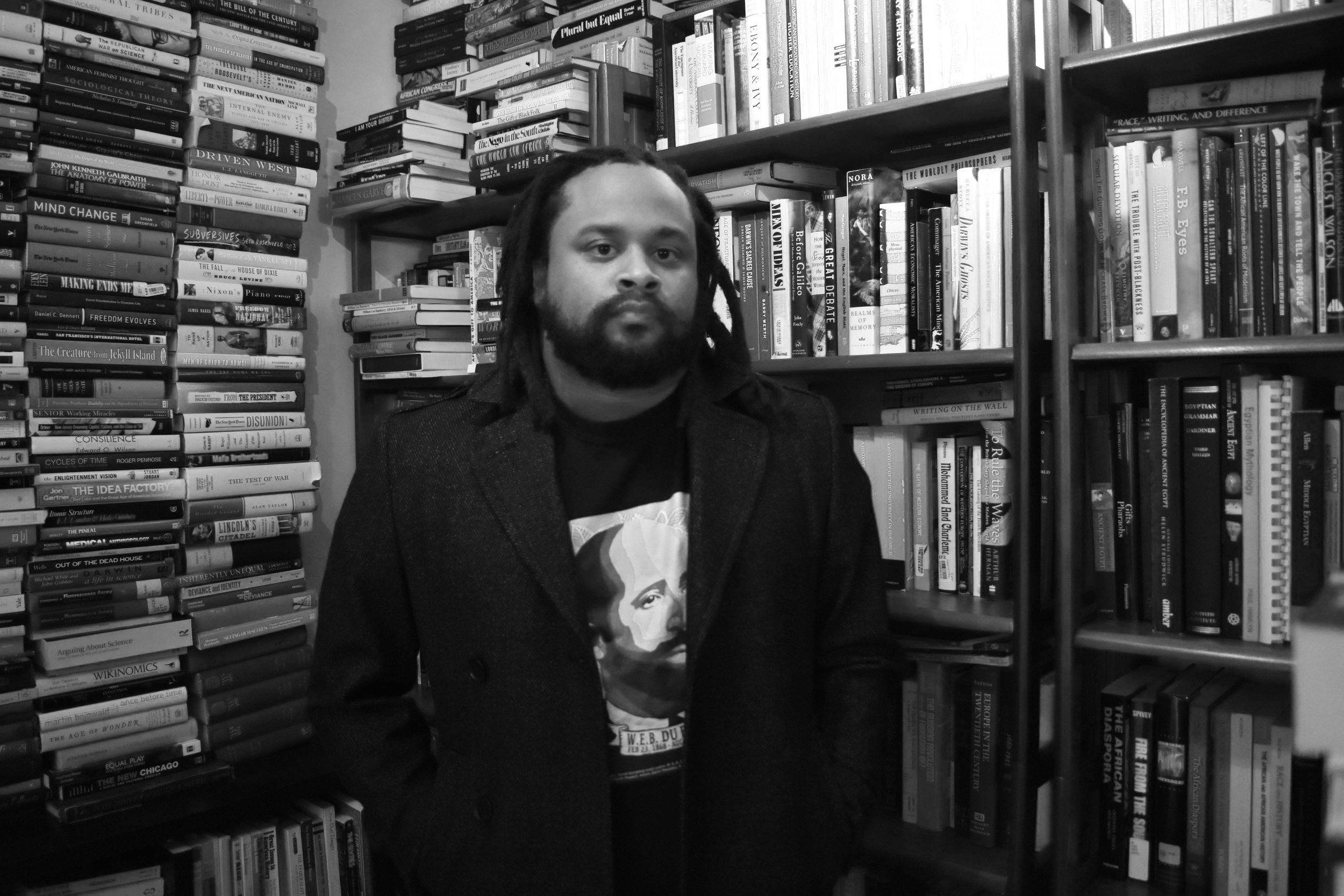Lecture Notes: Jacob Carruthers, African Deep Thought, and Revolutionary Theory
For those uninitiated in the approach to the study of the African American experience inaugurated by the scholars that have been labeled “Afrocentric” or “African-centered” (both inadequate terms), which includes a centuries-old cast of thinkers, starting a course on Twentieth Century Black Social and Political Thought with an excerpt from Jacob Carruthers’ Mdw Ntr[1] might seem odd. But this text creates space. Space to imagine what it is that an Africana Studies approach to knowledge might mean. But more importantly, space to consider points of entry into the intellectual warfare of our times with tools that prevent us from, as he often said, “snatching defeat from the jaws of victory.” For it is intellectual warfare that has thus far been waged to prevent us for considering freedom “on our own terms.” The struggle in and for ideas precedes any quest for liberation. In the preface to the text, Carruthers articulates what that victory means. And it is none other than the ability to interpret the histories and cultural memories of our ancestors without interpreters.Carruthers’ discussion of the debates around the question of African philosophy—whether it exists as an adjunct to the Western scientific and philosophical tradition or whether it is based on indigenous modes of knowing—mirror many of the questions around how we frame events in the twentieth century. In Cedric Robinson’s Black Marxism, we are introduced to the idea that time is indeed a “catchment” for events and that for Black intellectuals the development of a revolutionary theory emanated from registers more beholden to what Carruthers calls “African deep thought” than from any other knowledge complex native to a vacuous notion of “20th century Black thought.”[2]
And that is where the question of Carruthers' import arises. In developing what can rightly be considered an alternative reading of African intellectual history, the whole enterprise of “the champions of African deep thought” becomes the practice and promise of “placing Africa right side up.” Even as philosophy is a concept that may not be native to the Western tradition, what is native to it and no doubt problematic about easy assertions of its “stolen legacy” is the extent to which it was deformed and represented to us as the modern philosophy. Carruthers’ work—after reminding us of E. Franklin Frazier’s similar injunctions—asserts the necessity of going beyond such arrangements of knowledge considered normative, or even universal. Part of this involves making the linguistic, but more importantly a methodological break with the concept of philosophy and immersing one’s self in the intellectual foundations of African deep thought. That is, Frazier’s philosophy of “the folk.”African deep thought represents the complex ways in which African people imagined reality, and thus embodies a sense of how societies might be constructed, how humans should behave, how we are connected to larger concerns. The final pages of the first chapter discuss many of these ideas such as the concept of nun, or the concept of might vs. right. These are the deeper questions. And they grounded how the conceptual was "reified" to develop systems of human survival. These questions remain with us. They are questions that our ancestors in the twentieth century confronted as they developed the “freedom dreams” which grounded the social movements of that era. The larger historiographical absence or elision is the consideration that they most likely answered those questions in ways that connected them to the larger concerns of the Black radical tradition, which is itself a river that empties into the ocean of African deep thought.
Only Sterling Stuckey and the aforementioned Robinson have come close to connecting contemporary intellectual work to these conceptual universes. Greg Carr has provided a possible methodological roadmap for continuing this kind of approach. [3]If we are to seriously consider the study of the twentieth century, we obviously must be able to discern the major inflection points along the way. No one would seriously suggest not understanding the Great Depression or the rise of local insurgencies that have been labeled “The Civil Rights Movement.” But these are the “ordering of things,” the nexus between chronological sequencings and narratives of experience that make up the tools of the historian. We are after deeper concerns. We are after the ultimate meanings and significances of struggle, “the order of things.”[4] And it is clear that Carruthers’ concept of African deep thought can serve as both the point of orientation and the methodological scythe that cuts a new way of seeing our struggle as attempts to as Cedric Robinson so calmly asserts, “preserve the collective being, the ontological totality.”[5]
[1] Jacob Carruthers, Mdw Ntr: Divine Speech: An Historiographical Reflection of African Deep Thought form the time of the Pharaohs to the Present (London: Karnak House, 1995).
[2] Carruthers, Mdw Ntr, 31 and Cedric Robinson, Black Marxism: The Making of the Black Radical Tradition (Chapel Hill, NC: UNC Press, 2000), 177.
[3] See his essay, “Toward a Disciplinary History of Africana Studies: Genealogy and Normative Theory,” a contribution to Nathaniel Norment’s The African American Studies Reader (Durham, NC: Carolina Academic Press, 2007), 438-452.
[4] See Robinson’s discussion in Black Marxism, 177.
[5] Ibid, 171.







